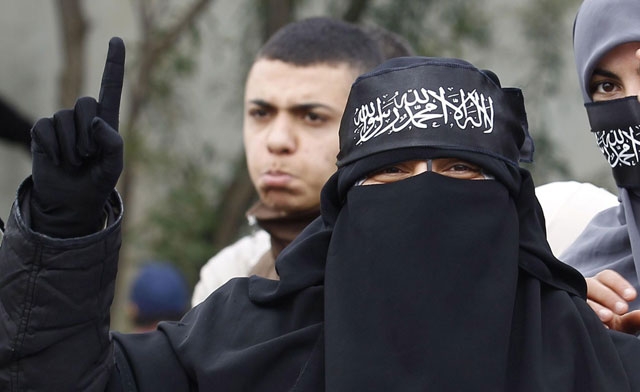
Salafis and the paradox of Political Stability in Morocco and Tunisia
Before the Soviet Union controlled the former republics of Central Asia, Sufi brotherhoods dominated the religious scene in Chechnya, Uzbekistan and Tajikistan. However, the Soviet policy toward Islam drove these Sufi groups underground for fear of persecution. In the aftermath of the fall of the Soviet bloc, legions of radical Islamists filled the gap left by the Soviet official religious doctrine that promoted atheism and secularism.
Salafis began to denounce democracy as a secular Western form of government and called for the application of Shari’a (Islamic law) as an organic form of government. This new Central Asian Islamic culture was also influenced by the Taliban ideology and Wahhabi Salafi discourse. A similar phenomenon has recently begun to take roots in North and Sub-Saharan Africa, threatening the economic, social and political stability of the region.Since 2000, a handful of ultraconservative Salafis began to emerge in North African states, including Morocco and Tunisia. In Morocco, Salafis flexed their religious and political muscles until May 16, 2003, when a series of suicide bombings shook tourist and religious sites in Casablanca. Salafis were held responsible for the terrorist attacks and the government jailed their activists, ideologues and some sympathizers, putting a temporary end to their public preaching.
In Tunisia, however, Ben Ali’s police state, like the Soviets in Central Asia, succeeded in driving radical, moderate, and liberal Islamists underground, making sure that all forms of Islamic public performance were not only marginalized and silenced but also eliminated. Women could not wear the veil and men were not allowed to grow their beards. Official, state-sanctioned Islam was the only licensed form of religious practice allowed in Ben Ali’s Tunisia. In mosques across Tunisia, official preachers eulogized Ben Ali’s government as a moderate Islamic state while security agencies jailed anyone thought to be “Islamist.” This religious void pushed radical elements to the fringe of society and limited their participation in the national political and religious spheres.
Successive Moroccan governments allowed multiple Islamic voices to participate in public debate as they tracked their political activities. Through this soft religious management policy, a spectrum of Islamic voices ranging from ultraorthodox Salafis to moderate Islamists could express themselves openly without government interference.
These policies played a key role in political developments following the 2011 uprisings in Morocco. As Prime Minister Abdellilah Benkirane, the secretary general of the Islamic-oriented Justice and Development Party, took over the reins of power in Morocco, Salafi leaders, such as Muhammad al-Fizazi, Abu Hafs, Omar al-Haddouchi and Hassan al-Kettani, emerged from their Moroccan prison cells and were allowed to regain the political and religious rights to speak from their pulpits. They have denounced human rights abuses in Moroccan prisons, lectured in national public forums, and travelled to other Middle Eastern states where they have met other Salafis in Tunisia, Egypt, and Qatar. Al-Fizazi, one of the most outspoken voices of the Salafi movement in Morocco, is even thought to consider forming a political party that accepts democracy as a legitimate form of government. Despite a decade of fighting between the Salafis and the Moroccan state, it looks like both parties – at least for now – have negotiated new rules of peaceful engagement.
Tunisian Salafis, on the other hand, have opted to reject elections and democracy as anti-Shari‘a, and called for the establishment of an Islamic state based on the Qur’an and Islamic law.
“Even Tunisia’s governing moderate Islamic party al-Nahda, which promised to unify the country, has not been able to convince the Salafis to join its efforts for a new democratic Tunisian society in the way Moroccan Islamists in power did”
The threat of many hard-line Islamists to Tunisia’s new political era has intensified as a “Talibanization” of Tunisian public spaces including mosques and schools was led mainly by Saif Allah Benahssine, leader of Ansar al-Sharia. Al-Nahda has been blamed for the political emboldening of these groups. Tunisian liberals and democratic seculars argue that in its attempts to re-Islamize Tunisia after years of Ben Ali’s secularism, al-Nahda allowed fringe and ultraorthodox groups to control hundreds of mosques throughout the country, appointing Salafi preachers, and allowing a handful of vigilante Islamists to terrorize civil society, including teachers and women. Liberals also blame external parties, such as the Gulf Salafis, al-Qaeda of the Arab Maghrib and even Gulf state governments, for funding these movements.
Recently, Muhammad al-Fizazi called upon his Tunisian Salafi brethren to reject violence and engage in peaceful preaching as an effective way to change Tunisian society. He also cautioned them from giving secular liberals, the United States and Europe a golden opportunity to reinforce their views about the Salafis and Islamists as violent. Until now Tunisian Salafis have paid no attention to his message. The amateur anti-Islam movie “Innocence of Muslims” has intensified their rage, forcing the American government to evacuate its personnel from Tunisia.
As Tunisian Salafis continue to strike fear in the streets of Tunisia, investors move their money out the country, tourists change their travel plans to other stable destinations, and secular Tunisians fear for their lives and rights. Meanwhile Moroccan Salafis have decided for now to enter a truce with the government. Some others, like al-Fizazi, have even showed a willingness to enter the national political scene.
